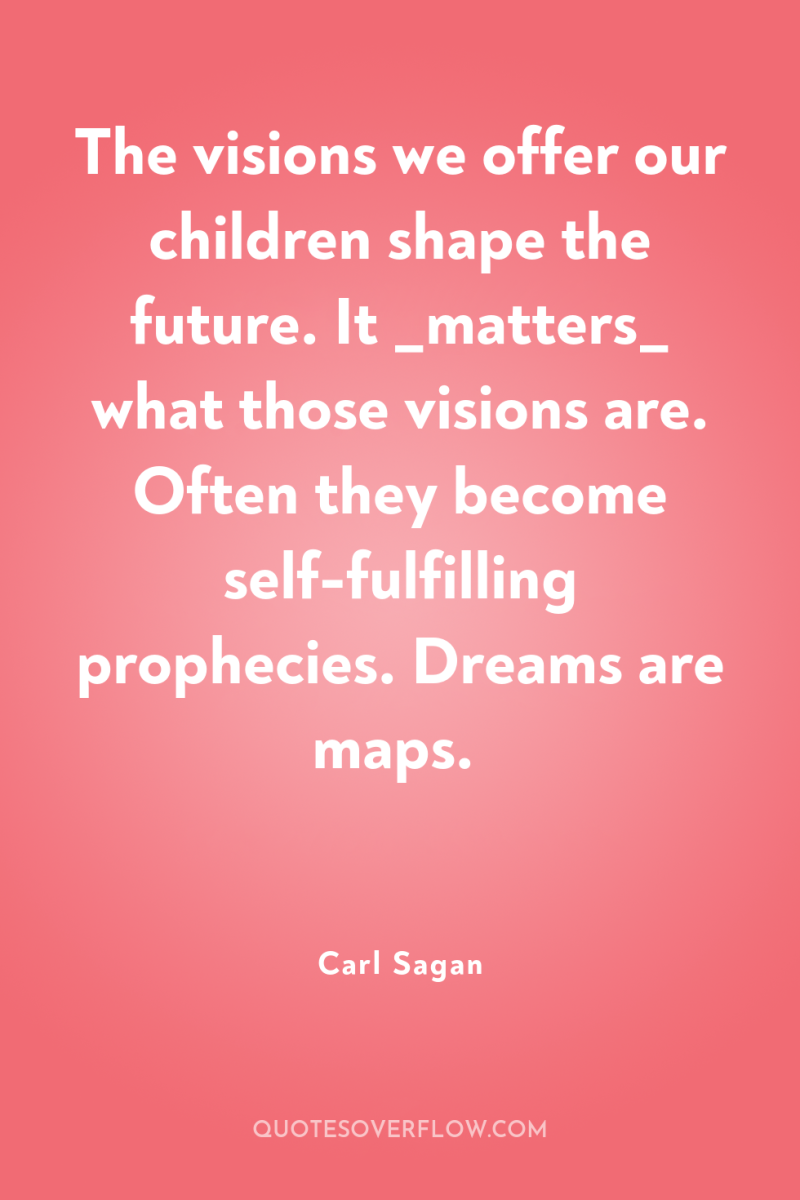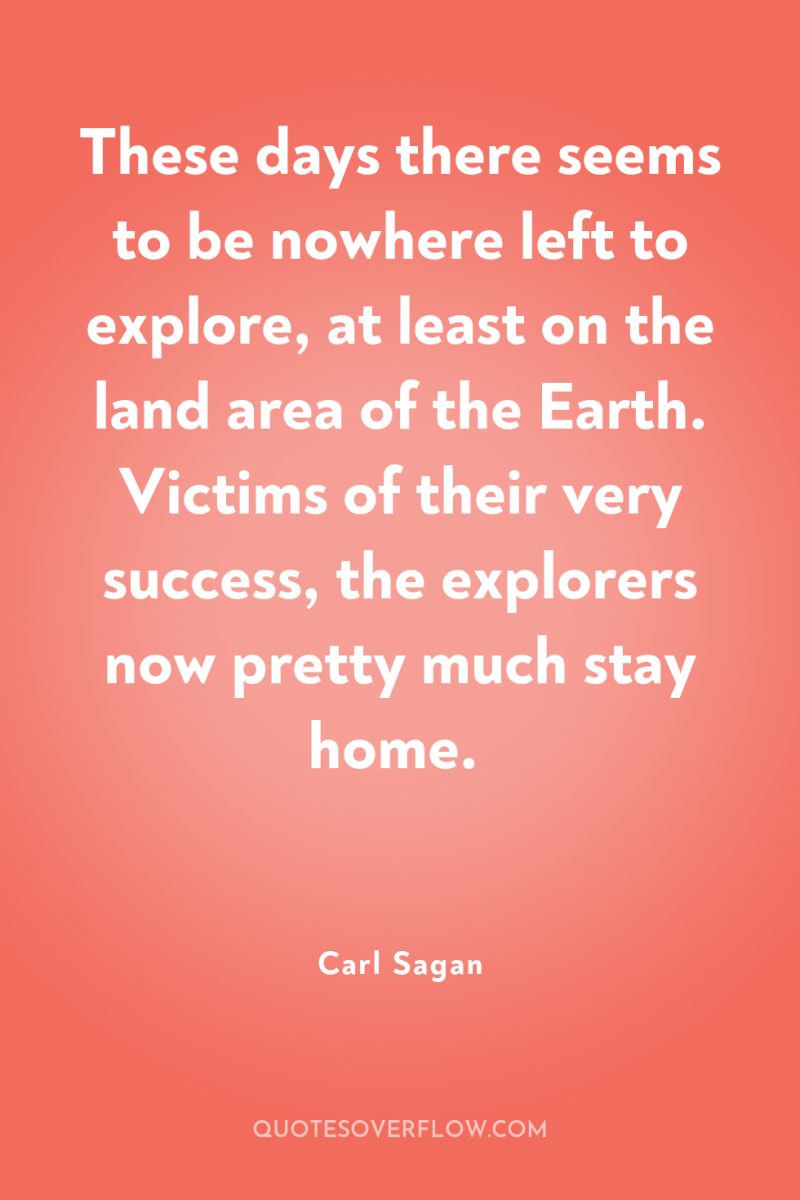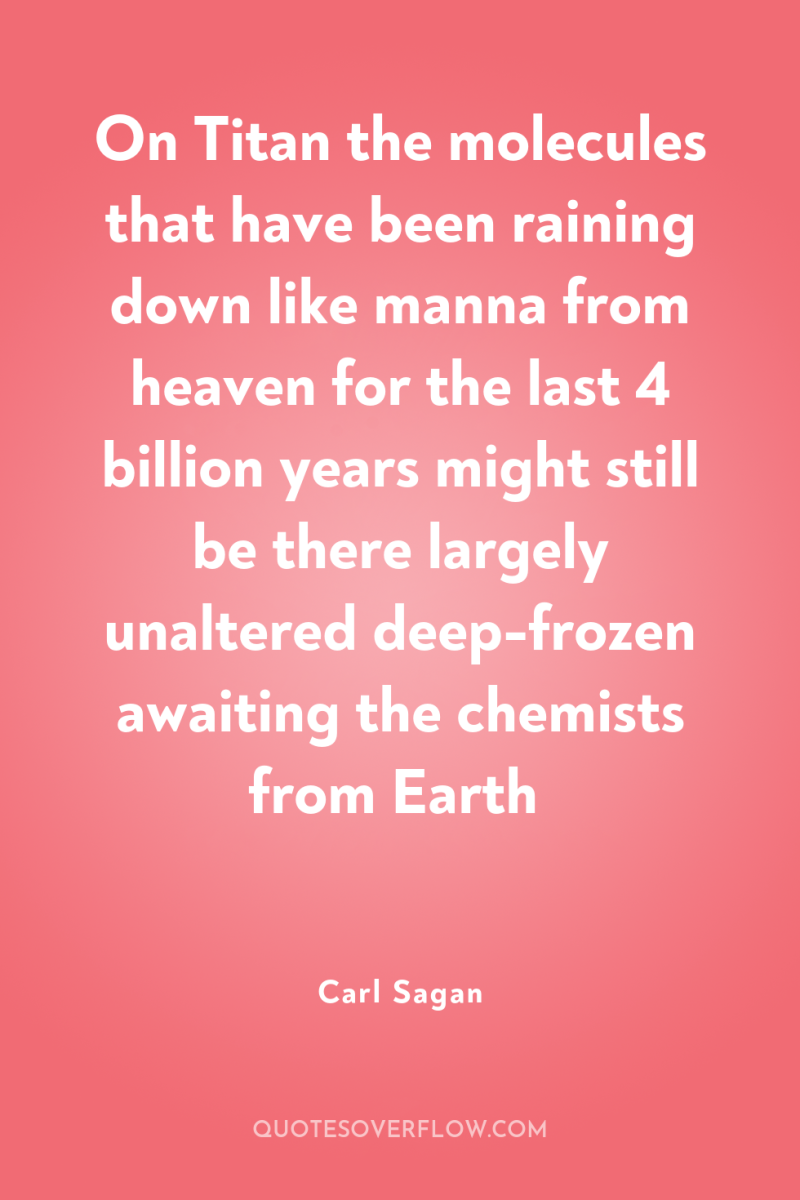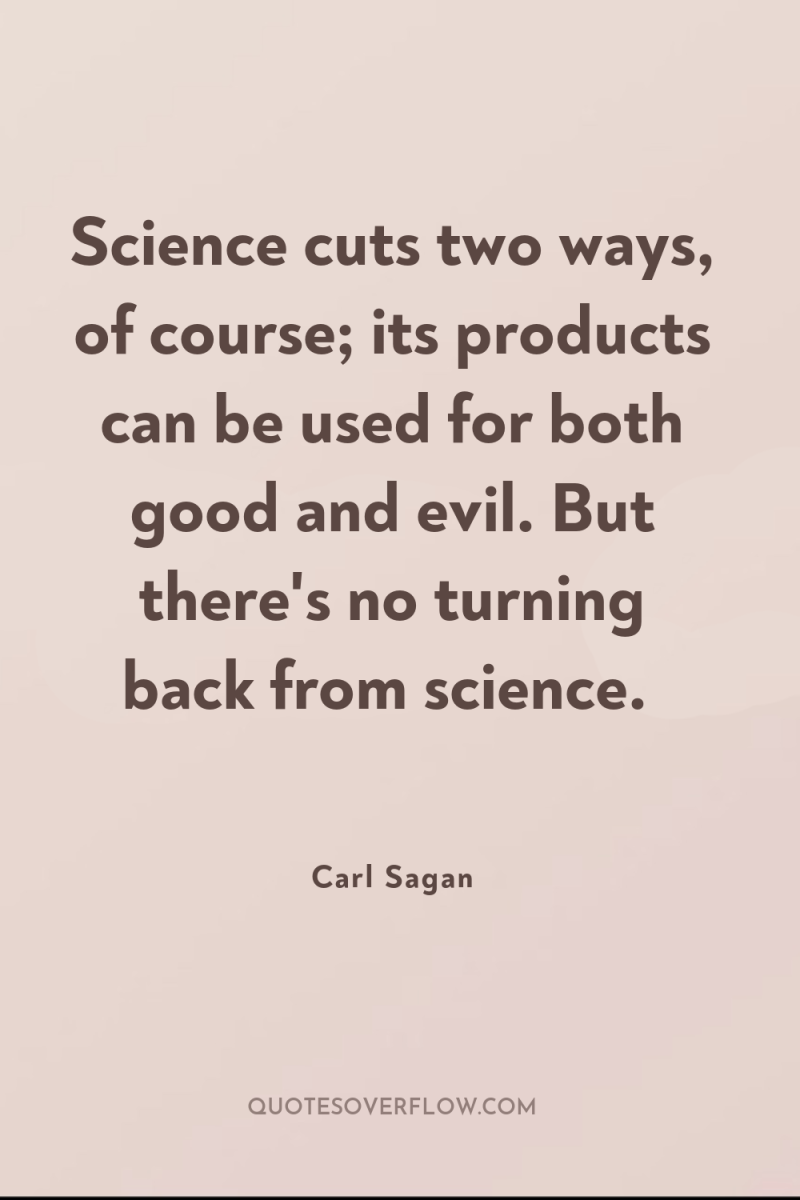1
Look again at that dot. That's here. That's home. That's us. On it everyone you love, everyone you know, everyone you ever heard of, every human being who ever was, lived out their lives. The aggregate of our joy and suffering, thousands of confident religions, ideologies, and economic doctrines, every hunter and forager, every hero and coward, every creator and destroyer of civilization, every king and peasant, every young couple in love, every mother and father, hopeful child, inventor and explorer, every teacher of morals, every corrupt politician, every "superstar, " every "supreme leader, " every saint and sinner in the history of our species lived there--on a mote of dust suspended in a sunbeam.Carl Sagan
2
From this distant vantage point, the Earth might not seem of particular interest. But for us, it's different. Consider again that dot. That's here, that's home, that's us. On it everyone you love, everyone you know, everyone you ever heard of, every human being who ever was, lived out their lives. The aggregate of our joy and suffering, thousands of confident religions, ideologies, and economic doctrines, every hunter and forager, every hero and coward, every creator and destroyer of civilization, every king and peasant, every young couple in love, every mother and father, hopeful child, inventor and explorer, every teacher of morals, every corrupt politician, every "superstar, " every "supreme leader, " every saint and sinner in the history of our species lived there — on a mote of dust suspended in a sunbeam. The Earth is a very small stage in a vast cosmic arena. Think of the rivers of blood spilled by all those generals and emperors so that, in glory and triumph, they could become the momentary masters of a fraction of a dot. Think of the endless cruelties visited by the inhabitants of one corner of this pixel on the scarcely distinguishable inhabitants of some other corner, how frequent their misunderstandings, how eager they are to kill one another, how fervent their hatreds. Our posturings, our imagined self-importance, the delusion that we have some privileged position in the Universe, are challenged by this point of pale light. Our planet is a lonely speck in the great enveloping cosmic dark. In our obscurity, in all this vastness, there is no hint that help will come from elsewhere to save us from ourselves. The Earth is the only world known so far to harbor life. There is nowhere else, at least in the near future, to which our species could migrate. Visit, yes. Settle, not yet. Like it or not, for the moment the Earth is where we make our stand. It has been said that astronomy is a humbling and character-building experience. There is perhaps no better demonstration of the folly of human conceits than this distant image of our tiny world. To me, it underscores our responsibility to deal more kindly with one another, and to preserve and cherish the pale blue dot, the only home we've ever known.Carl Sagan
3
The significance of our lives and our fragile planet is then determined only by our own wisdom and courage. We are the custodians of life's meaning. We long for a Parent to care for us, to forgive us our errors, to save us from our childish mistakes. But knowledge is preferable to ignorance. Better by far to embrace the hard truth than a reassuring fable. If we crave some cosmic purpose, then let us find ourselves a worthy goal.Carl Sagan
4
How is it that hardly any major religion has looked at science and concluded, “This is better than we thought! The Universe is much bigger than our prophets said, grander, more subtle, more elegant?” Instead they say, “No, no, no! My god is a little god, and I want him to stay that way.” A religion, old or new, that stressed the magnificence of the Universe as revealed by modern science might be able to draw forth reserves of reverence and awe hardly tapped by the conventional faiths.Carl Sagan
5
Or consider a story in the Jewish Talmud left out of the Book of Genesis. (It is in doubtful accord with the account of the apple, the Tree of Knowledge, the Fall, and the expulsion from Eden.) In The Garden, God tells Eve and Adam that He has intentionally left the Universe unfinished. It is the responsibility of humans, over countless generations, to participate with God in a "glorious" experiment - the "completing of the Creation." The burden of such a responsibility is heavy, especially on so weak and imperfect a species as ours, one with so unhappy a history. Nothing remotely like "completion" can be attempted without vastly more knowledge than we have today. But, perhaps, if our very existence is at stake, we will find ourselves able to rise to this supreme challenge.Carl Sagan

6
The visions we offer our children shape the future. It _matters_ what those visions are. Often they become self-fulfilling prophecies. Dreams are maps.Carl Sagan
7
I do not think it irresponsible to portray even the direst futures if we are to avoid them we must understand that they are possible. But where are the alternatives Where are the dreams that motivate and inspire We long for realistic maps of a world we can be proud to give to our children. Where are the cartographers of human purpose Where are the visions of hopeful futures of technology as a tool for human betterment and not a gun on hair trigger pointed at our heads .Carl Sagan
8
Ann Druyan suggests an experiment: Look back again at the pale blue dot of the preceding chapter. Take a good long look at it. Stare at the dot for any length of time and then try to convince yourself that God created the whole Universe for one of the 10 million or so species of life that inhabit that speck of dust. Now take it a step further: Imagine that everything was made just for a single shade of that species, or gender, or ethnic or religious subdivision. If this doesn’t strike you as unlikely, pick another dot. Imagine it to be inhabited by a different form of intelligent life. They, too, cherish the notion of a God who has created everything for their benefit. How seriously do you take their claim? .Carl Sagan
9
A blade of grass is a commonplace on Earth; it would be a miracle on Mars. Our descendants on Mars will know the value of a patch of green. And if a blade of grass is priceless, what is the value of a human being?Carl Sagan
10
The Cosmos extends, for all practical purposes, forever. After a brief sedentary hiatus, we are resuming our ancient nomadic way of life. Our remote descendants, safely arrayed on many worlds throughout the Solar System and beyond, will be unified by their common heritage, by their regard for their home planet, and by the knowledge that, whatever other life may be, the only humans in all the Universe come from Earth. They will gaze up and strain to find the blue dot in their skies. They will love it no less for its obscurity and fragility. They will marvel at how vulnerable the repository of all our potential once was, how perilous our infancy, how humble our beginnings, how many rivers we had to cross before we found our way.Carl Sagan
11
Once we lose our fear of being tiny, we find ourselves on the threshold of a vast and awesome Universe which dwarfs -- in time, in space, and in potential -- the tidy anthropocentric proscenium of our ancestors.Carl Sagan
12
Consider again that dot [Earth]. That's here. That's home. That's us. On it everyone you love, everyone you know, everyone you ever heard of, every human being who ever was, lived out their lives. The aggregate of our joy and suffering, thousands of confident religions, ideologies, and economic doctrines, every hunter and forager, every hero and coward, every creator and destroyer of civilization, every king and peasant, every young couple in love, every mother and father, hopeful child, inventor and explorer, every teacher of morals, every corrupt politician, every "superstar, " every "supreme leader, " every saint and sinner in the history of our species lived there - on a mote of dust suspended in a sunbeam.Carl Sagan

13
These days there seems to be nowhere left to explore, at least on the land area of the Earth. Victims of their very success, the explorers now pretty much stay home.Carl Sagan

14
On Titan the molecules that have been raining down like manna from heaven for the last 4 billion years might still be there largely unaltered deep-frozen awaiting the chemists from EarthCarl Sagan

15
Science cuts two ways, of course; its products can be used for both good and evil. But there's no turning back from science.Carl Sagan
16
We tend to hear much more about the splendors returned than the ships that brought them or the shipwrights. It has always been that way. Even those history books enamored of the voyages of Christopher Columbus do not tell much about the builders of the Nina the Pinta and the Santa Maria or about the principle of the caravel. These spacecraft their designers builders navigators and controllers are examples of what science and engineering set free for well-defined peaceful purposes can accomplish. Those scientists and engineers should be role models for an America seeking excellence and international competitiveness. They should be on our stamps.Carl Sagan
17
It is now almost possible to assign color combinations, based on the colors of clouds and sky, to every planet in the Solar System–from the sulfur-stained skies of Venus and the rusty skies of Mars to the aquamarine of Uranus and the hypnotic and unearthly blue of Neptune. Sacre-jaunt, sacre-rouge, sacre-vert. Perhaps they will one day adorn the flags of distant human outposts in the Solar System, in that time when the new frontiers are sweeping out from the Sun to the stars, and the explorers are surrounded by the endless black of space. Sacre-noir. .Carl Sagan
18
The symbolism seemed so apt. The same technology that can propel apocalyptic weapons from continent to continent would enable the first human voyage to another planet. It was a choice of fitting mythic power: to embrace the planet named after, rather than the madness ascribed to, the god of war.Carl Sagan
19
N every culture, the sky and the religious impulse are intertwined. I lie back in an open field and the sky surrounds me. I’m overpowered by its scale. It’s so vast and so far away that my own insignificance becomes palpable. But I don’t feel rejected by the sky. I’m a part of it - tiny, to be sure, but everything is tiny compared to that overwhelming immensity. And when I concentrate in the stars, the planets, and their motions, I have an irresistible sense of machinery, clockwork, elegant precision working on a scale that, however lofty out aspirations, dwarfs and humbles us. .Carl Sagan
20
The vast distances that separate the stars are providential. Beings and worlds are quarantined from one another. The quarantine is lifted only for those with sufficient self-knowledge and judgment to have safely traveled from star to star.Carl Sagan
21
It has been said that astronomy is a humbling and character-building experience. There is perhaps no better demonstration of the folly of human conceits than this distant image of our tiny world. To me, it underscores our responsibility to deal more kindly with one another and to preserve and cherish the pale blue dot, the only home we've ever known.Carl Sagan
22
There is something stunningly narrow about how the Anthropic Principle is phrased. Yes, only certain laws and constants of nature are consistent with our kind of life. But essentially the same laws and constants are required to make a rock. So why not talk about a Universe designed so rocks could one day come to be, and strong and weak Lithic Principles? If stones could philosophize, I imagine Lithic Principles would be at the intellectual frontiers. .Carl Sagan
23
Modern science has been a voyage into the unknown, with a lesson in humility waiting at every stop. Many passengers would rather have stayed home.Carl Sagan
24
Look again at that dot. That's here. That's home. That's us. On it everyone you love, everyone you know, everyone you ever heard of, every human being who ever was, lived out their lives. The aggregate of our joy and suffering, thousands of confident religions, ideologies, and economic doctrines, every hunter and forager, every hero and coward, every creator and destroyer of civilization, every king and peasant, every young couple in love, every mother and father, hopeful child, inventor and explorer, every teacher of morals, every corrupt politician, every "superstar, " every "supreme leader, " every saint and sinner in the history of our species lived there-on a mote of dust suspended in a sunbeam. The Earth is a very small stage in a vast cosmic arena. Think of the endless cruelties visited by the inhabitants of one corner of this pixel on the scarcely distinguishable inhabitants of some other corner, how frequent their misunderstandings, how eager they are to kill one another, how fervent their hatreds. Think of the rivers of blood spilled by all those generals and emperors so that, in glory and triumph, they could become the momentary masters of a fraction of a dot. Our posturings, our imagined self-importance, the delusion that we have some privileged position in the Universe, are challenged by this point of pale light. Our planet is a lonely speck in the great enveloping cosmic dark. In our obscurity, in all this vastness, there is no hint that help will come from elsewhere to save us from ourselves. The Earth is the only world known so far to harbor life. There is nowhere else, at least in the near future, to which our species could migrate. Visit, yes. Settle, not yet. Like it or not, for the moment the Earth is where we make our stand. It has been said that astronomy is a humbling and character-building experience. There is perhaps no better demonstration of the folly of human conceits than this distant image of our tiny world. To me, it underscores our responsibility to deal more kindly with one another, and to preserve and cherish the pale blue dot, the only home we've ever known.Carl Sagan
25
The Earth is a very small stage in a vast cosmic arena. Think of the endless cruelties visited by the inhabitants of one corner of this pixel on the scarcely distinguishable inhabitants of some other corner, how frequent their misunderstandings, how eager they are to kill one another, how fervent their hatreds. Think of the rivers of blood spilled by all those generals and emperors so that, in glory and triumph, they could become the momentary masters of a fraction of a dot.Carl Sagan
26
Science cuts two ways, of course; its products can be used for both good and evil. But there's no turning back from science. The early warnings about technological dangers also come from science.Carl Sagan
27
There is every reason to think that in the coming years Mars and its mysteries will become increasingly familiar to the inhabitants of the Planet Earth.Carl Sagan
28
Whatever the reason we first mustered the _Apollo_ program, however mired it was in Cold War nationalism and the instruments of death, the inescapable recognition of the unity and fragility of the Earth is its clear and luminous dividend, the unexpected final gift of _Apollo_. What began in deadly competition has helped us to see that global cooperation is the essential precondition for our survival. Travel is broadening. It's time to hit the road again. .Carl Sagan
29
The Apollo pictures of the whole Earth conveyed to multitudes something well known to astronomers: On the scale of the worlds - to say nothing of stars or galaxies - humans are inconsequential, a thin film of life on an obscure and solitary lump of rock and metalCarl Sagan
30
Before we invented civilization our ancestors lived mainly in the open out under the sky. Before we devised artificial lights and atmospheric pollution and modern forms of nocturnal entertainment we watched the stars. There were practical calendar reasons of course but there was more to it than that. Even today the most jaded city dweller can be unexpectedly moved upon encountering a clear night sky studded with thousands of twinkling stars. When it happens to me after all these years it still takes my breath away.Carl Sagan
31
Sailors on a becalmed sea, we sense the stirring of a breeze.Carl Sagan
32
Once upon a time, we soared into the Solar System. For a few years. Then we hurried back. Why? What happened? What was 'Apollo' really about?Carl Sagan